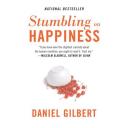This book gave the readers a glimpse what was like to live through these tumultuous years between the two world wars (1913 and 1933) both started by Germany. The story ended right at the onset of the World War II. There were several German governments during these times. The people seemed numbed from all the changes and went about their own business and life, without knowing what they were stepping into a “duel” between the “state” (Hitler’s Nazi government) and the individual people (their belief, righteousness and right). The writing was most excellent even after being translated from German. The author used great metaphors to draw the readers into the vivid picture of their lives and what are left.
My take-aways:
– Things can turn from bad (losing the WW I) to worse (hyper inflationary era, where money lost its value between paychecks) to disaster (Nazi’s take over) very quickly without the people’s even noticing the threat to rise against it.
– When Nazi (SA) soldiers ran around with guns, it’s very hard to argue against the “power.” People succumbed to the power and learned the phrase “hail to Hitler” very quickly, when the alternative was being beaten up and even facing death. Going against the power and risking death did not seem logical to the author and obviously the majority of the people.
– By the author’s account, the forced camaraderie (or peer pressure of sorts) among the youths in the concentration camps drove people to do things they normally wouldn’t do on their own including turning against the Jews and their own conscience/belief.
– The youthful innocence among the author’s friends who used to argue against one another in good faith suddenly changed when Nazi took over the power. The nationalist extreme friends became Nazis. And his friends of the other extreme emigrated outside of Germany. The polarization was clear cut.
– The hyper-inflationary era after Germans loss of WW I drove the economy into a tail spin. This created an fertile ground for Hitler and his party. Hitler was in the “right” place at the “right” time.
– The continued concession by the leader to Hitler without any principles may have seeded Hitler’s ruthlessness and his obsession with power. Of course, lack of alliance with other countries like France, UK after WW I certainly did not help to stem Hitler’s encroachment.
– Ironically, the author married a Jewish woman – illegal by Nazi’s law. As a result, he had to emigrate to UK to be united with his wife and two children, leaving a country he loved and yet hated the people in power. It’s a duel that the individual usually loses or walks away.
– The relation between the author and his father was very close. Perhaps that was normal in that era in Germany. At the age of 27+, he was still consulting his father about career decision whether to become a lawyer or writing for the newspaper or getting his PhD. The guy was talented for sure.
Unfortunately, the story ended abruptly in 1933 at the strengthening of the Nazi party. Would be nice to know what happened during and after the WW II.
I listened to the audio book version, which was narrated very well by a German-accented person, which makes the story seem very realistic.
Overall, I utterly enjoyed the book. The emotional impact is very real and lasting.




